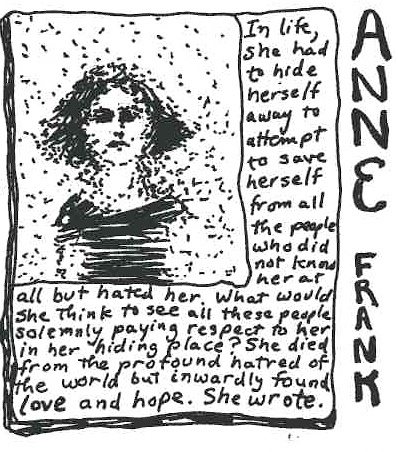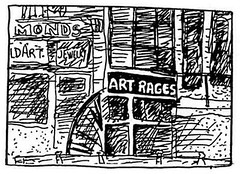Here are some points for and against Chief Justice Roberts keeping the gold braid stripes. On the one hand, the modest and unpretentious John Roberts might want to dispense with the pomp and blend in with his fellow justices, placing greater emphasis on the "equals" part of the Chief Justice's status as "first among equals." On the other hand, Chief Justice Roberts might want to retain the gold bars as a tribute to his predecessor and mentor. Removal of the stripes would constitute a repudiation of Rehnquist's sartorial legacy at the Court.I say he should keep the stripes as a tribute. The tribute rational will tend to cancel the tendency to call it pompous. But then I liked Rehnquist having the stripes. It never seemed that pompous to me. It seemed more like he didn't take himself deadly seriously — which is what the plain black robes are about. He was inspired by an opera! I'm thinking he thought why must everything always be so somber and sober. And then he does something fun and people act like he's a big stuffed shirt? What a drag to be a judge! I think Roberts better use those stripes to keep his spirits up. And underneath: plaid pants!
By the way, that UTR post is full of interesting links and comments, including an attempt to answer my question about why Souter, alone among the Justices, declined to issue a statement on the death of Chief Justice Rehnquist. No one seems to have a good answer, so it's an occasion to make up reasons, in the style of a Letterman Top Ten list.
IN THE COMMENTS: Especially good comments here, including more than one Top Ten list and some alternate suggestions on how Roberts could glamorize his robe. And what's stopping the rest of them from fooling around with the uniform?







